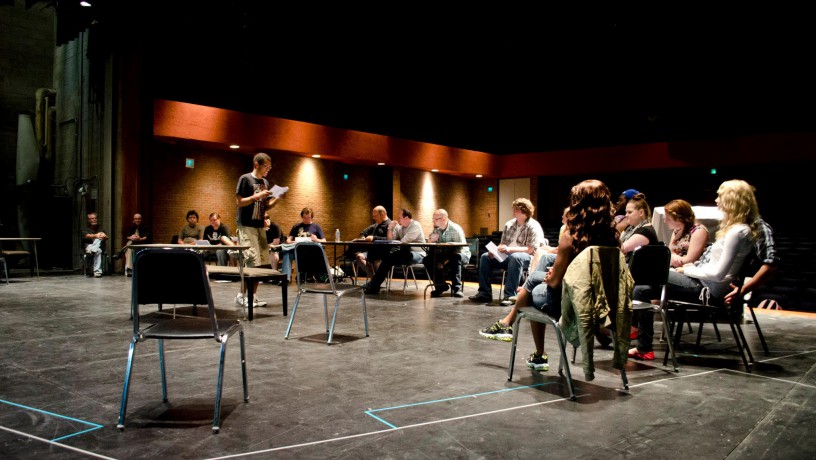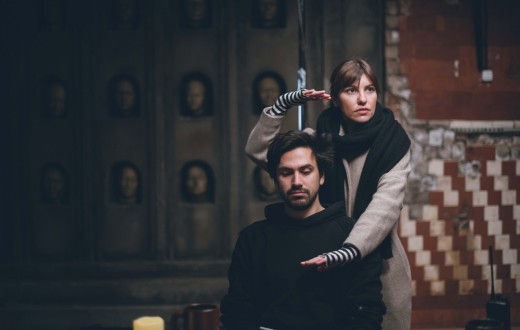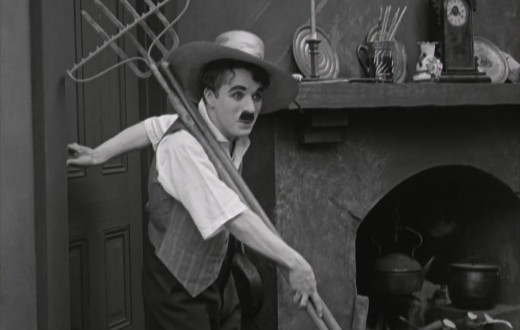As actors we spend a lot of time discussing–and let’s face, it worrying about–monologue auditions. Surely the hardest part of our jobs is walking into a room, facing down a table full of strangers–who are literally there to judge us!–and delivering a clean and well-performed piece that will show who we really are as actors and as people, all pulled completely out of context.
But let’s leave that for a moment and talk about what happens next: let’s assume that everything goes great at your monologue audition and you get the callback.
Hooray, first of all! The first hurdle has been cleared!
But…let’s be realistic: that really is just the very first barrier to booking the role. Aside from waking up in time to make the monologue audition and not pooping yourself in front of the casting team, you’re really at square one. You’ve got at least another round of auditions to get through, and more likely several, depending on what you’re reading for.
So…what do? How does one prepare for cold readings? After all, you are not likely to know what the sides are going to be at a cold read–hence the name. Even so, there are some common sense steps you can take to help get yourself in the best place possible to do well at the cold read. Here are a few.
1. Research
When auditioning for a television show or a film, you probably won’t have access to scripts in advance of the cold read. However you still have some powerful tools at your disposal, in the form of the internet. Read everything you can find about the project in Hollywood Reporter, Variety, and any other trade rag you can find that mentions the piece. This is a tough row to hoe, but you would be surprised how much you can glean from articles touting an as-yet unproduced script this way: storylines, plot points, characters, the general drift of the piece–is it a dark futuristic dystopian or a sunny family comedy? Now, if you are reading for a role in a play, you have no excuse. If you don’t already have a script from the library or downloaded from the web, you should immediately go get one when you find out you got the callback. Know the characters that you might be up for. Know some of their key scenes. Another great resource is YouTube. If it is a play of any note, there will surely be some theater company or another that has uploaded recordings of their production. If nothing else you might get a better sense of the story, a scene, or a character’s arc–even if all you see is what NOT to do as an actor.
2. Read scenes aloud
As any actor knows, there is a huge difference between reading to yourself and speaking words out loud. Since you are going to be doing the latter at your audition, you should probably practice that, no? Get with a friend if you can and read a few scenes together. This will help you practice getting the words in your mouth. But you should also try to get the feel of the piece in your body. Stand up, move around, work on making eye contact with your scene partner as you read. All of this will give you an advantage over your less-prepared competition at the cold read.
3. Allow your creativity room to roam
Some of my favorite acting exercises have happened early on in the rehearsal process, when a director lets us actors try different, random, weird stuff: switching roles, switching genders, trying out accents or different backstories, reading while lying flat on your back, running in place, imagine yourself having just had sex with your scene partner, or on your way to murder someone after this scene–let your mind play with the possibilities. Even if there is no way you are going to actually read the piece this way, and you may be surprised at what useful discoveries you encounter. What’s more, playfulness like this is exactly what you need for your cold read: an open mind. The ability to listen and to think on your feet are vital to acting, and directors are on the lookout for these skills at cold reads.
4. Physical tips
Two nuts and bolts things to remember about cold reads which you can practice as you work with your scene partner or read aloud to the mirror: don’t block your face, and work on making eye contact, listening and reacting. The former is of course fairly rudimentary, but you would be surprised how many actors, when confronted with holding a script, reading, and also trying to act, hold the script up in front of their faces. Keep the sides low so the director and casting team can see you. This many seem to contradict the second part of this, which is to listen and react to your scene partner. Here is where your familiarity with the piece will come into play! Also you have to find a way to trust yourself to look away from the script long enough to connect with the other actor in the scene. This isn’t easy, but then again what about acting is? Listen, react, then look back down at your sides as needed. A genuine reaction is usually much more valuable than a rapid-fire snappy comeback at an audition like this. Which leads us to:
5. Loosen up
Think of this not only in terms of warming up before your cold read (and always!) also work on making yourself more relaxed as you read. Deep breathing exercises help a great deal, as does remembering to have some fun! We are playing a part when we act, the key word here being “play.” If a director can see you genuinely connecting with a character, listening, breathing through the quieter moments with a genuine connection to your scene partner, you will be better served than if you rush through. Stay in the moment, find your place again if you get lost, and keep going. If you feel the scene has gone completely off the rails, just ask if you can start over without making a big thing of it. Your quiet confidence in your ability to get back into a scene and do the job is perhaps as important as your acting. This also ties in with all the preparation you should have already done as outlined above: the better you know the piece and the characters you are auditioning for, the more confident you should feel! Break a leg!






